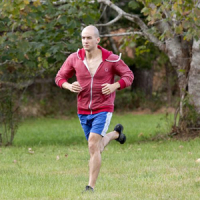They say that knowledge is power. In an age when we can get local news from 10 time zones before breakfast, and people are sharing articles at the speed of a tweet, staying in the know has become increasingly more difficult. Worse than that, the fear of missing out overwhelms many people and causes such a great amount of stress that their overall productivity gets seriously hindered.

I live a busy life, running several companies and being a husband and father to three young boys. I “process” over 1,000 blog posts each day, I “review” three non-fiction books per week, and I “absorb” two non-fiction works per month. Unless I had nothing else to do in my day but sit and read, most of this would not be possible but for some shortcuts and a few choice apps to help me along the way. Here’s how I get it all done.
There are two parts to implementing new ideas: coming up with the idea or the ideation phase, and then the execution. Taking on new information is very similar. It’s one thing to simply read and expose yourself to new knowledge, but to really make it stick you need to relate to it, discuss it, act on it, or simply share it.
The blog posts are the easiest part. I use Feedly to follow roughly 200 blogs on a daily basis. When I said that I process over 1,000 posts per day instead of reading over 1,000 posts per day, I meant it. With blog posts you can usually get the gist of the story from the headline and the first paragraph, even if it’s just enough to know that you are interested. To get through so many posts so fast you can recruit the help of one of my favorite websites, IFTTT (If This Than That). IFTTT creates simple automations between various web services like Youtube, Twitter, Google Docs, and Feedly. When I save an item in Feedly (which requires a single click or keystroke), seven things automatically occur: the item is shared on Facebook, Twitter, LinkedIn, Delicous, Zootool, Pocket, and it’s added to my Evernote notes. That means I don’t have to read the whole thing now. I can get through things a lot faster, while sharing them with my audience and saving them to Evernote (which is my own external brain).
Second level reading is the non-fiction stuff. Non-fiction books are great because they provide you with a lot of interesting and often actionable knowledge. I always find at least one nugget of information that I can immediately apply to the work I do. Current popular non-fiction titles are the ones that get discussed at networking events and social outings, and you should at least be aware of them. This is where the app Blinkist comes into play. Blinkist is like Cliff Notes except so much better. An editor reads the book and then picks out the dozen or so major points, then summarizes each one into a single page so you get the most pertinent information in about 15 minutes.
Third level is fiction. This is a tough one for most people. There are a number of studies that have shown the benefits of reading fiction as it challenges us to empathize with characters and imagine worlds that don’t exist. I used to find it difficult to justify spending my time on something that I perceived as being purely for leisure and not “useful.” Some of you may remember a service called DailyLit that would email you a single page of a book every day for your reading pleasure. Now, they’ve created an app called Rooster that delivers installments of 20 to 30 pages of two works of fiction each month. One of them is a classic, (I’m currently reading Billy Budd, Sailor by Herman Melville) and the other is a DailyLit original. I’ll admit reading Melville for the first time has been a challenge, but one I’ve gladly accepted.
Finally, there’s the good old Kindle app for when you find the time to read through those bestsellers you’ve been meaning to get through. The nice thing about reading with Kindle is that you can easily read 20 pages from one book and 20 pages from another to keep yourself engaged and interested. And if you find yourself being especially lazy, just forward any article online to SoundGecko. It will deliver a spoken word version in minutes that you can listen to while working out or walking the dog.
So join me in this quest for new knowledge. Try out the apps and read some good books. Share your good reads on Twitter using the hashtag #ldbookclub and inspire others.






